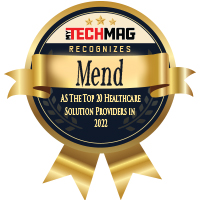Blockchain-A connected ledger for Healthcare
Blockchain can be described as a distributed system, which stores transaction records and this technology has taken almost all industries by storm. Experts believe that blockchain technology has the potential to transform the healthcare sector, bringing the patient at the heart of the healthcare ecosystem, strengthening the privacy and security, alongside interoperability of health data. This technology could offer a new model for health information exchanges (HIE) by making electronic medical records more efficient, secure and reducing the function of intermediaries. While it is not a wonder drug, this new, rapidly evolving field provides fertile ground for experimentation, proof-of-concept testing, and investment.
Innovation:
According to experts, the present healthcare scenario has often been called incompetent to handle information exchange and needs certain changes. Blockchain has exceeded the “innovation trigger” and is now at the “peak of inflated expectations” with regards to the most recent Gartner Hype Cycle and could perhaps change how one views healthcare and data together.
Intelligent Cryptography:
It can be said that one of the biggest aspects that make the use of blockchain comprehensive in healthcare is the lack of a central administrator. It is seen that a database is still a tactile thing- consisting of bits and bytes. Any person who has access to the system could corrupt the data from inside owing to the fact that the contents of the database are stored in the physical memory of a particular system. With blockchain, this issue can be resolved through intelligent cryptography removing the requirement for a central administrator. Alongside, all the users will be in control of their data and transactions. Since healthcare trades with confidential patient information and demands fast access to information, blockchain can streamline these medical records and securely modify their sharing. Blockchain, in a single go, offers access to data privacy, security, and scalability.
Access to Patient Record:
Numerous other benefits can be garnered by the implementation of blockchain in healthcare including access to longterm patient records by bringing together episodes, disease registries, treatments, lab results. This record can be accessed through inpatient, ambulatory and wearable data which can enhance the way caregivers deliver their expertise.
Sorted Records:
There are also instances when often dealing with healthcare data records they get ill-sorted or duplicated. And, different electronic health records have divergent schemas for every single field- coming up with unconventional ways of entering and operate the simplest of data sets. With blockchain, the complete data set can be set into a ledger, and not just the primary key. Here a user can initiate a search by using address only, even if a patient has listed multiple addresses and keys. Blockchain’s unique mechanism will all yield to single patient identification.
Automatic Verification:
Since blockchain works on an affirmation-based exchange, the claims can be automatically established where the network allows upon the way a contract has been executed. Also, since there is the absence of central authority, there would be lesser errors or frauds. Blockchain-based contracts can help healthcare institutions in observing supply-demand cycles through its entire lifecycle including how the entire transaction takes place, whether the contract is successful, or if there are any delays.
Collaboration:
Also, interoperability, the very promise of the blockchain, can be realized by the use of sophisticated APIs to make electronic health records interoperable and data storage a dependable process. Also, since the blockchain network can be shared with accredited providers in an assured and standardized way it can remove the cost and burden associated with data reconciliation.
Hence, taking into account the fast progress in the development of new and more cost-efficient healthcare record systems, wearable devices, and medical examination systems implementing artificial intelligence, cryptography will become an important part of the way hospitals work. The blockchain era has already begun.









